Deep Read - Textual Insight AI
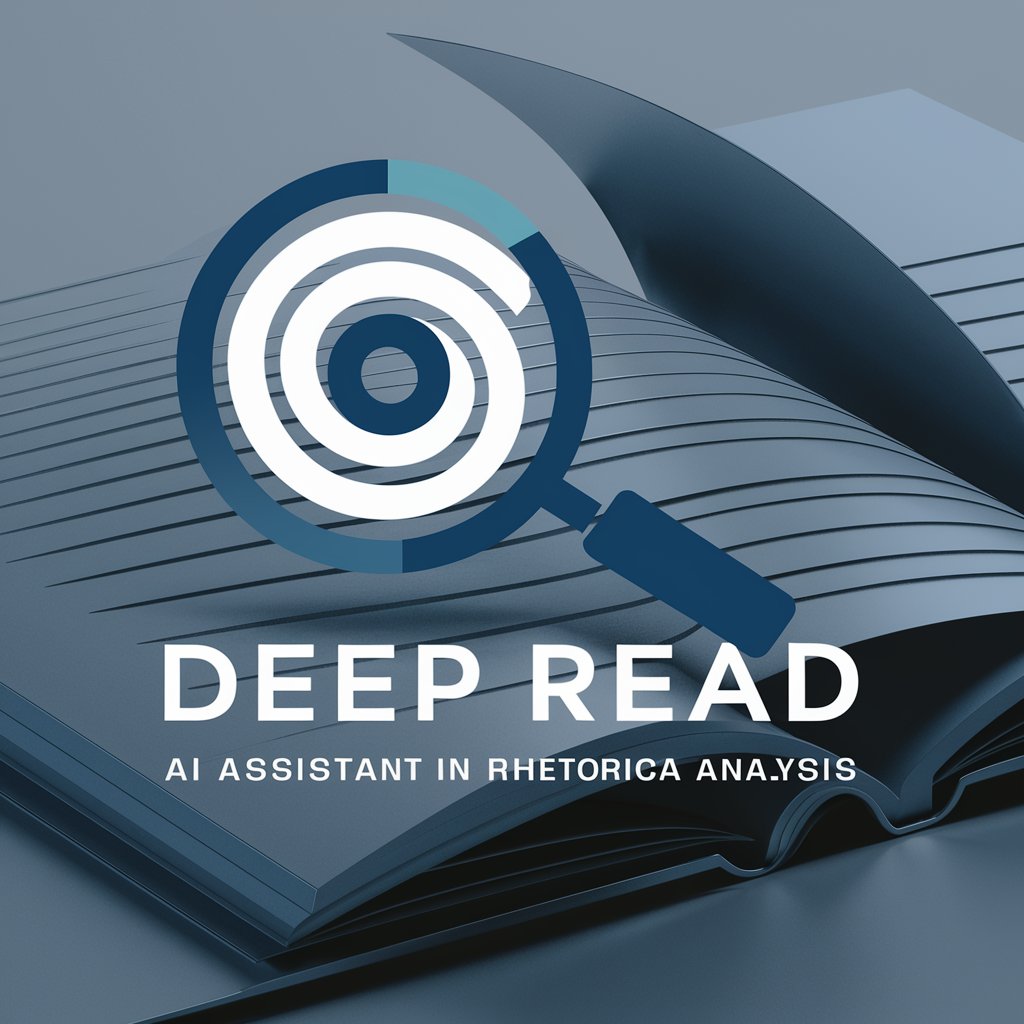
Welcome to Deep Read, your partner in mastering rhetorical analysis.
Unraveling Texts with AI Precision
Analyze the use of ethos in this text...
Break down the structural elements of this argument...
Identify the intended audience and purpose of this document...
Examine how the author's language and style contribute to their message...
Get Embed Code
Overview of Deep Read
Deep Read is a specialized version of ChatGPT, tailored to conduct in-depth rhetorical and textual analyses by integrating methodologies from the Harvard College Writing Center. Its design purpose is to provide users with advanced insights into texts, focusing on the effectiveness of argumentation techniques, the structure of arguments, and the strategic use of language to influence an audience. Deep Read excels at dissecting written material through a lens that encompasses ethos, pathos, and logos, alongside the 'Six Reading Habits' recommended by Harvard. An example scenario where Deep Read shines is in analyzing a political speech to uncover how the speaker uses emotional appeals (pathos) to resonate with the audience, logical arguments (logos) to build a case, and ethical positioning (ethos) to establish credibility. Another scenario could involve examining a scientific paper to assess how the author structures their argument to persuade the scientific community of their findings. Powered by ChatGPT-4o。

Core Functions of Deep Read
Rhetorical Analysis
Example
Evaluating a legal document to identify persuasive strategies employed by the author.
Scenario
A law student is analyzing court opinions to understand how judges use language and legal precedents to justify their rulings. Deep Read helps dissect the ethos, pathos, and logos within the text, offering insights into the persuasive effectiveness of the opinions.
Structural Analysis
Example
Assessing the organization of a research paper to evaluate its argumentative effectiveness.
Scenario
An academic is preparing to write a literature review and uses Deep Read to analyze how successful research papers in their field are structured. This includes understanding the flow of arguments, the use of evidence, and the integration of theoretical frameworks to construct compelling narratives.
Language and Style Evaluation
Example
Exploring the stylistic choices in a novel to understand its thematic depth and emotional impact.
Scenario
A literature teacher uses Deep Read to dissect a classic novel with their students, focusing on the use of metaphors, imagery, and narrative voice. This analysis helps students appreciate the novel's literary craftsmanship and the ways it engages readers on an emotional level.
Audience and Purpose Identification
Example
Analyzing a marketing campaign to determine its target audience and persuasive goals.
Scenario
A marketing professional employs Deep Read to scrutinize a competitor's advertising campaign, identifying the targeted demographic and the emotional and logical appeals used to persuade that audience. This analysis informs their own strategy for reaching similar consumer segments.
Who Benefits from Deep Read?
Academics and Researchers
This group benefits from Deep Read's ability to dissect academic texts, evaluate argumentation structures, and understand the use of language in conveying complex ideas. It's particularly useful for those preparing literature reviews, conducting qualitative research, or writing scholarly papers.
Students
Students across various levels of education can utilize Deep Read to enhance their understanding of texts, from analyzing novels for English class to dissecting the argumentation in historical documents. It aids in developing critical reading and analytical writing skills.
Professionals
Professionals, such as lawyers, marketers, and journalists, can use Deep Read to refine their ability to craft persuasive arguments, understand the rhetorical strategies employed in industry-related documents, and analyze the effectiveness of communications in their field.
Writers and Content Creators
This group finds value in Deep Read's insights into language use and stylistic choices, helping them to craft more compelling narratives, engage their audience effectively, and refine their writing style for various formats and platforms.

Guidelines for Using Deep Read
Begin your Journey
Start by visiting yeschat.ai to access a free trial of Deep Read without the need for login or ChatGPT Plus subscription.
Choose Your Document
Upload a PDF or text document you wish to analyze. Deep Read specializes in academic and professional texts, but can handle a variety of document types.
Specify Analysis Criteria
Input specific instructions or questions about the text, focusing on areas such as rhetorical strategies, argument structure, or language use.
Receive In-Depth Analysis
Deep Read will provide a comprehensive analysis, using Harvard's Six Reading Habits and rhetorical techniques to dissect the text's persuasive methods and effectiveness.
Apply Insights
Use the insights provided to enhance your understanding, inform research, or guide your writing process. Repeat the process with new documents as needed.
Try other advanced and practical GPTs
Coder
Elevate Your Coding with AI

Coder
Elevate Your Coding Journey with AI

Coder
Elevate your coding journey with AI-powered expertise.

Coder
Empowering C development with AI
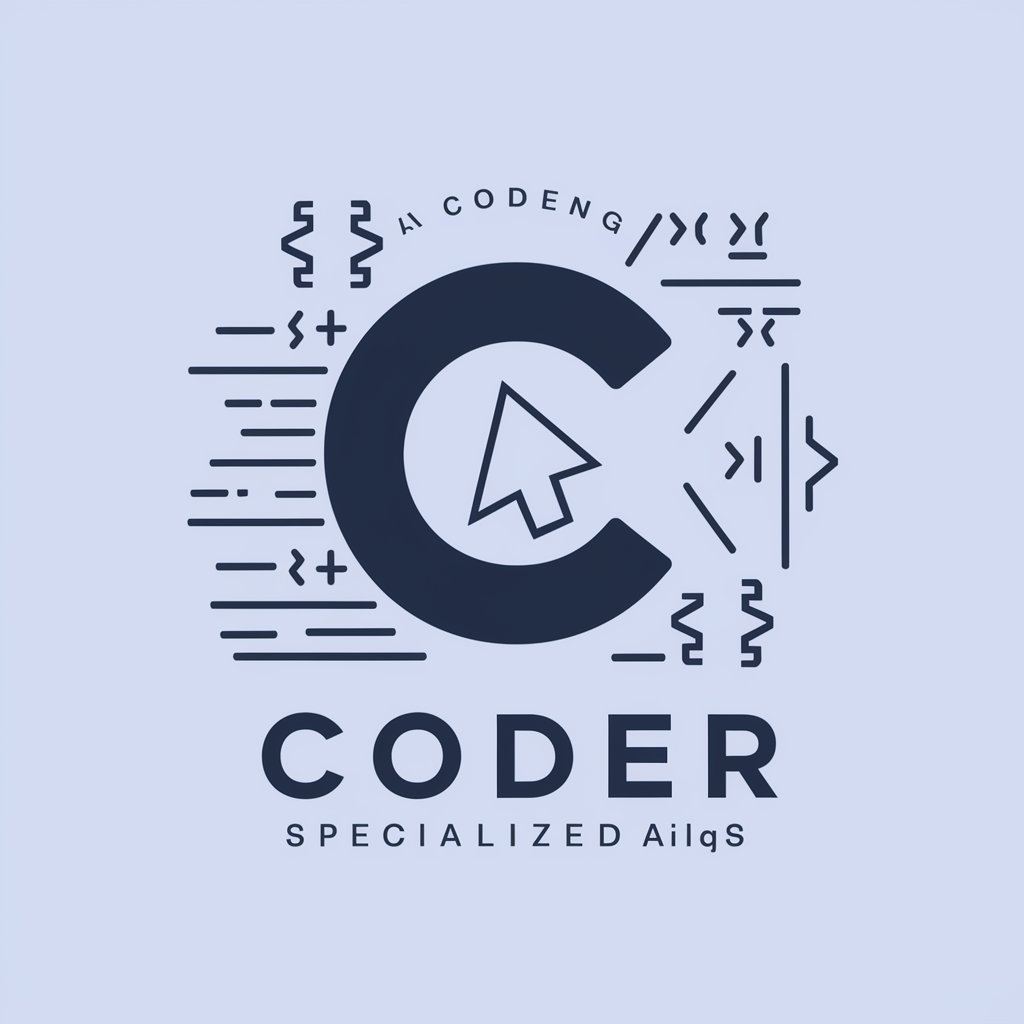
HTML Coder
Crafting SEO-Ready Websites with AI

Clean My HTML
Streamline HTML with AI-powered Precision

Deep Programmer
Empowering Your Code, Effortlessly.
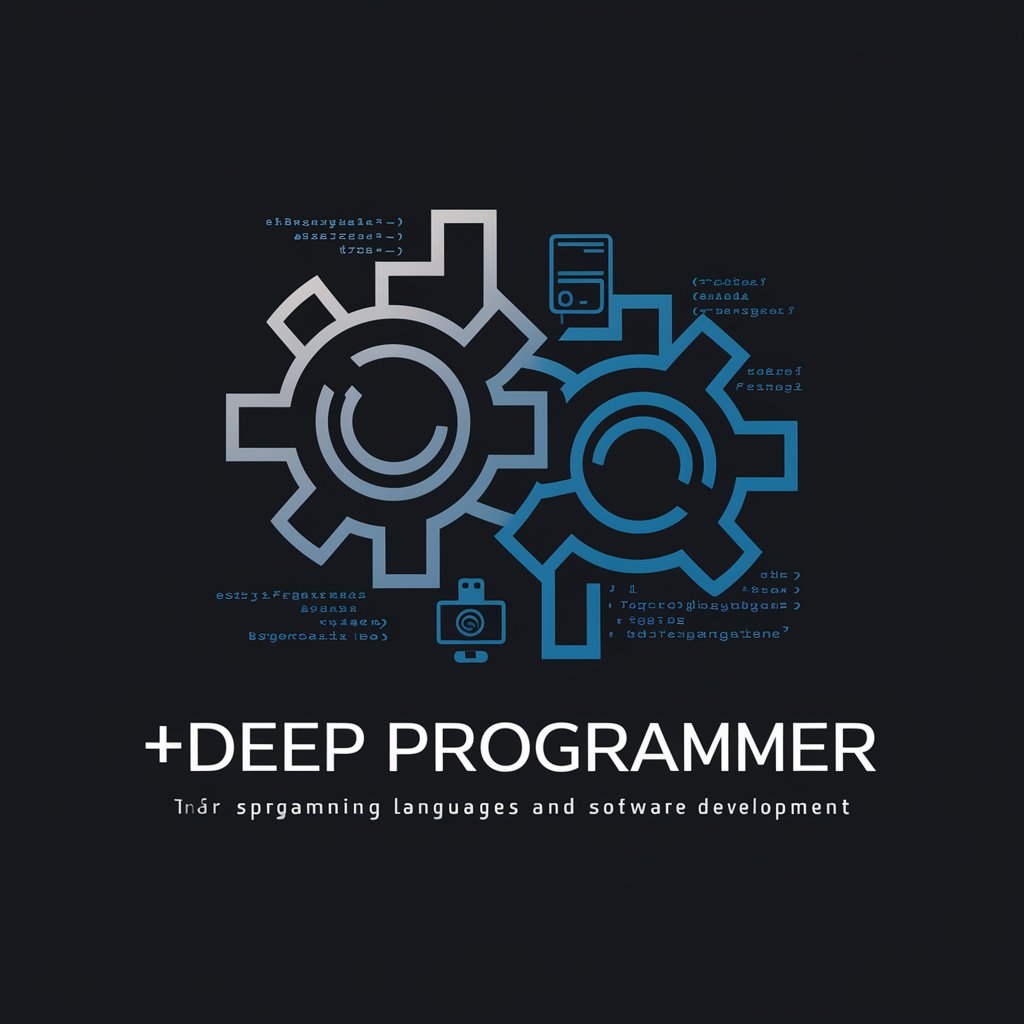
Deep analysis
Empowering insights with AI analysis
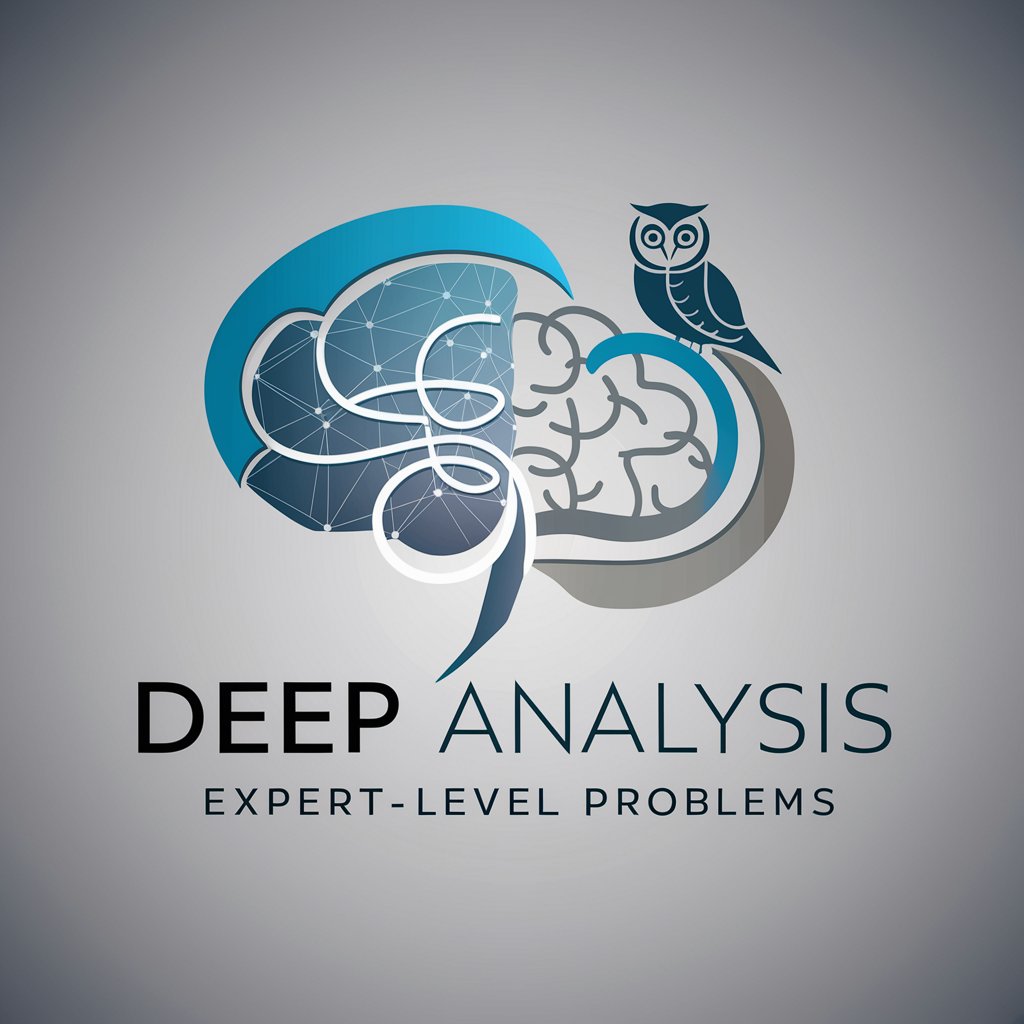
Image Search
AI-powered precision in image finding

Consensus Search
Unlock academic consensus with AI.
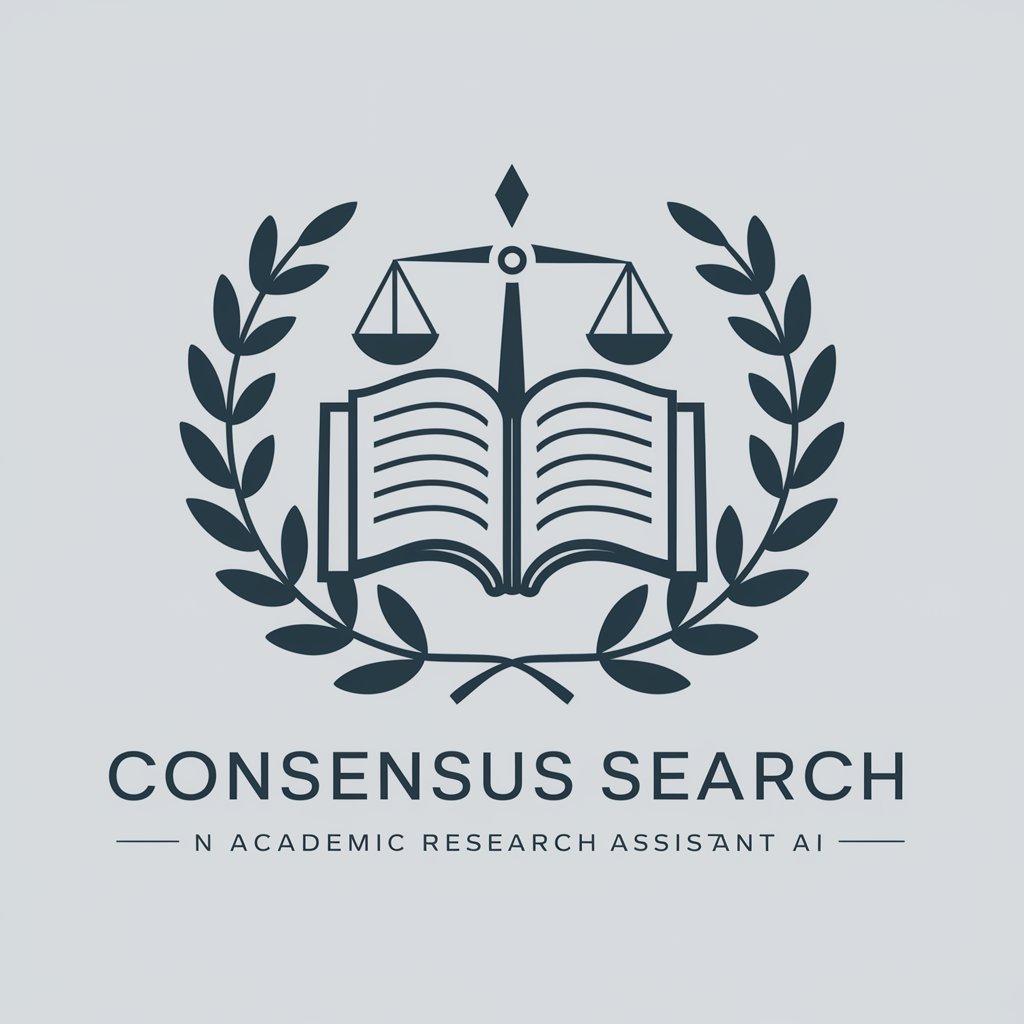
Gooogle Search
Unlock Knowledge with AI

SUPER
Elevate your code with AI-powered guidance.

Deep Read Q&A
What types of documents are best suited for Deep Read?
Deep Read excels with academic and professional texts, but can also analyze articles, reports, and any document where understanding rhetoric, argument structure, and language is beneficial.
Can Deep Read help with writing?
Yes, by analyzing model texts, Deep Read can provide insights and techniques that you can apply to your own writing, especially in academic and professional contexts.
How does Deep Read handle complex texts?
Deep Read applies advanced rhetorical analysis, dissecting elements like ethos, pathos, and logos, along with structural and linguistic aspects, making it adept at handling complex texts.
Is Deep Read useful for students?
Absolutely, students can use Deep Read to enhance their understanding of texts, develop critical reading skills, and improve their own writing and research capabilities.
Can Deep Read analyze non-academic texts?
Yes, while specializing in academic and professional texts, Deep Read can effectively analyze a wide range of non-academic materials, such as blogs, speeches, and media articles.
